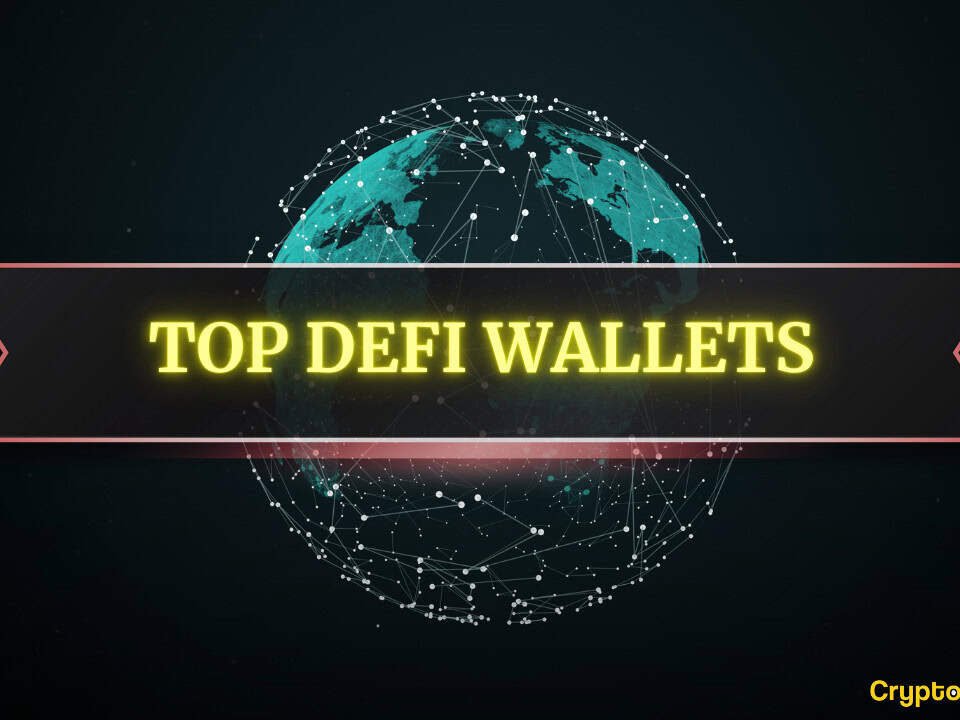
7 Best Solana (SOL) Wallets: Full Comparison (Updated 2024)
November 10, 2024
What Are Decentralized Crypto Exchanges? The Complete Guide
November 10, 2024
Yield farming has been a preferred subject within the DeFi house for a while now. We all know you could have many questions on it—what it’s and why it’s producing a lot buzz.
Many specialists credit score yield farming for the astounding progress of the DeFi house this 12 months. The progress is due to the idea of liquidity farming. It entails each traders and speculators as they provide liquidity to platforms offering lending and borrowing providers. In return, the lending and borrowing platforms pay them excessive rates of interest. In addition they obtain part of the platforms’ tokens as incentives.
The present stars of the DeFi house are the liquidity suppliers. They’re known as yield farmers. Compound (COMP), Curve Finance (CRV), and Balancer (BAL) are among the many main names. To take part in yield farming, you want a dependable and safe pockets. In case you’re not sure which one to decide on, take a look at our information on the finest DeFi wallets that will help you get began.
Compound: The First To Initialize the Liquidity Farming Craze
All of it started with the dwell distribution of Compound’s COMP token on June 14th, 2020. COMP is the governance token of Compound. The dwell distribution of COMP tokens was very profitable. It helped the platform attain $600 million in complete worth locked (TVL). It was the primary time for any DeFi protocol to overhaul MakerDAO on the leaderboard of DeFi Pulse.
The distribution of COMP was adopted by that of Balancer’s BAL token. Balancer launched its protocol rewards incentive program in Might. Inside just a few days after COMP, they began the dwell distribution of their BAL token. It was additionally very profitable. They had been capable of attain a determine of $70 million in TVL.
Though the continued yield farming insanity started with COMP, it was a part of DeFi even earlier than that.
Synthetix invented the protocol token rewards idea, which it launched in July 2019. The corporate rewarded customers who supplied liquidity to the sETH/ETH pool on Uniswap V1 with token rewards.
Yield Farming – The Reply for DeFi’s Liquidity Woes
What’s the first concern within the DeFi house? The reply is liquidity. Now, you have to be questioning why the DeFi gamers want cash. For starters, banks even have some huge cash, and but they borrow extra to run their day-to-day operations, to take a position, and so forth.
In DeFi, strangers on the web present the required liquidity. Therefore, DeFi tasks appeal to HODLers with idle belongings by way of revolutionary methods.
One other factor to contemplate is that some providers require excessive liquidity to keep away from severe worth slippage and a greater general buying and selling expertise. Decentralized exchanges (DEX) are a major instance.
Borrowing from customers is proving to be fairly a preferred possibility. Sooner or later, it could even rival borrowing from debt traders and enterprise capitalists.
So, What’s Yield Farming?
To attract a comparability with legacy finance, yield farming might be described as depositing cash in a financial institution. Throughout the years, banks have historically paid out totally different rates of interest to those that preserve their cash in deposits. In different phrases, you obtain a sure annualized curiosity to maintain your cash deposited in a financial institution.
Yield farming within the DeFi house is much like this. Customers lock their funds with a particular protocol (like Compound, Balancer, and many others.), which then lends them to individuals who have to borrow at a sure rate of interest. In return, the platform rewards those that lock their funds and generally additionally shares part of the charges with them for offering the mortgage.
Lenders’ earnings by way of rates of interest and costs are much less important. Relating to actual payoff, the models of recent crypto tokens from the lending platform take the cake. When the crypto lender’s token worth rises, the consumer will make a bigger revenue.
What’s the Relationship Between Yield Farming and Liquidity Swimming pools?
Uniswap and Balancer supply charges to liquidity suppliers as a reward for including liquidity to their swimming pools. As of writing these strains, each Uniswap and Balancer are DeFi’s largest liquidity swimming pools.
In Uniswap’s liquidity swimming pools, the 2 belongings are break up 50-50. However, Balancer’s liquidity swimming pools permit as much as eight belongings and supply customized allocations.
The liquidity suppliers obtain a share of the platform’s charge each time somebody trades by way of the liquidity pool. Uniswap’s liquidity suppliers have seen glorious returns due to the current enhance in DEX buying and selling volumes.
Exploring Curve Finance: Advanced Yield Farming Made Straightforward
Curve is among the main DEX liquidity swimming pools. It was constructed to supply an environment friendly manner of buying and selling stablecoins. As of now, Curve helps USDT, USDC, TUSD, SUDS, BUSD, DAI, PAX, and the BTC pairs. Curve leverages automated market makers to allow low-slippage trades.
The automated market makers additionally assist Curve preserve the transaction charges low. Though it has solely been available in the market for just a few months, it’s already forward of many different main exchanges with regards to buying and selling quantity. iCurve’s efficiency has been stronger than a number of the prime names within the yield farming business.
As of now, it’s forward of Balancer, Aave, and Compound Finance. Curve is the best choice amongst most arbitrage merchants because it presents plenty of financial savings in the course of the trades.
There’s a distinction between Curve’s and Uniswap’s algorithms. Uniswap’s algorithm focuses on growing liquidity availability, whereas Curve’s focus is on enabling minimal slippage. Therefore, Curve stays a best choice for crypto merchants with high-volume buying and selling.
Understanding the Dangers of Yield Farming
Impermanent Loss
There’s a cheap probability of shedding your cash in yield farming. For particular protocols reminiscent of Uniswap, automated market makers may be fairly worthwhile. Nevertheless, volatility may cause you to lose funds. Any antagonistic worth change causes your stake to scale back in worth relative to holding the unique belongings.
The concept is straightforward, and it’s solely attainable whenever you’re staking tokens that aren’t stablecoins as a result of, this fashion, you’re uncovered to the volatility of their worth. In different phrases, when you stake 50% ETH and 50% of a random stablecoin to farm a 3rd token, if the worth of ETH drops sharply, you would possibly find yourself shedding extra money than you’ll have when you merely market-bought the token that you’re farming.
Instance: You stake 1 ETH (priced at $400) and 400 USDT to farm YFI whereas its worth is $13,000 (the instance is just not primarily based on present liquidity swimming pools.) Your every day ROI is 1%, which means that you must earn about $8 value of YFI each day to your $800 preliminary funding. Nevertheless, due to extreme market volatility, the worth of ETH drops to $360, and also you’ve misplaced 10% of your ETH whereas incomes, let’s say, $8 of YFI. In case you had market purchased $800 of YFI as an alternative and its worth didn’t transfer, you’ll have preserved your worth.
The idea dubbed “Impermanent Loss” is defined at size in this text by Quantstamp.
Sensible Contract Dangers
Hackers can exploit sensible contracts, and there are a lot of examples of such instances this 12 months. Curve, $1 million compromised in bZx, lendf.me are just a few examples.
The DeFi growth has led to a rise within the TVL of nascent DeFi protocols by thousands and thousands of {dollars}. Therefore, attackers are more and more concentrating on DeFi protocols.
Threat Inside the Protocol Design
Many of the DeFi protocols are at a nascent stage, and therefore, there’s a risk of gaming the incentives. Check out the current occasions of YAM Finance, the place an error within the rebasing mechanism prompted the challenge to lose over 90% of its greenback worth in just some hours. Though, the event crew had clearly disclosed the hazards of utilizing the unaudited protocol.
Excessive Liquidation Threat
Your collateral is topic to the volatility related to cryptocurrencies. The market swings also can put your debt positions in danger. Thus, it could develop into undercollateralized. You may additionally must face additional losses due to inefficient liquidation mechanisms.
DeFi Tokens are Topic to the Bubble Threat
The underlying tokens of yield farming protocols are reflexive. Their worth could enhance with an uptick in its utilization. This reminds the early days of the 2017 ICO growth. Everyone knows the way it ended. The DeFi growth could be totally different; nonetheless, many of the tasks benefit from the hype and never their utility in reaching higher-than-expected market caps.
Rug Pulls
It’s vital to do not forget that on platforms reminiscent of Uniswap, which is on the forefront of DeFi, anybody is free to withdraw liquidity from the market at will until it’s locked by way of a third-party mechanism.
Moreover, in plenty of instances, if not in most of them, the builders are in control of large quantities of the underlying asset, they usually can simply dump these tokens available on the market, leaving traders with a bitter style. The latest instance comes from what was touted as a promising challenge known as Sushiswap, the place the lead developer dumped his tokens value thousands and thousands of ETH, crashing the worth of SUSHI by greater than 50% straight away.
Conclusion
Yield Farming has develop into the newest pattern amongst crypto fanatics. It’s also attracting many new customers to the world of DeFi.
But, one should not neglect that there are severe dangers related to it. Impermanent loss, sensible contract dangers, and liquidation dangers are main issues that have to be accounted for.
Though it could be notably worthwhile, it’s vital to contemplate these challenges and solely use capital you can afford to lose.
Binance Free $600 (CryptoPotato Unique): Use this hyperlink to register a brand new account and obtain $600 unique welcome supply on Binance (full particulars).
LIMITED OFFER 2024 at BYDFi Alternate: As much as $2,888 welcome reward, use this hyperlink to register and open a 100 USDT-M place at no cost!





















